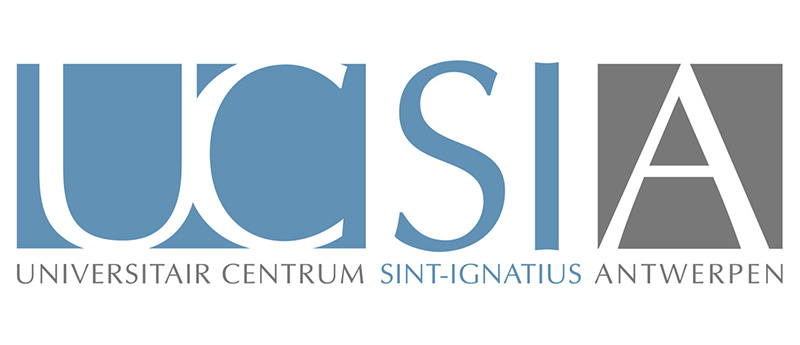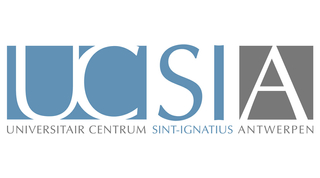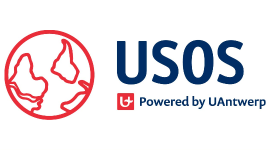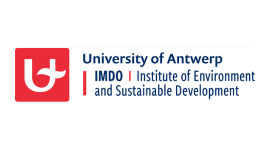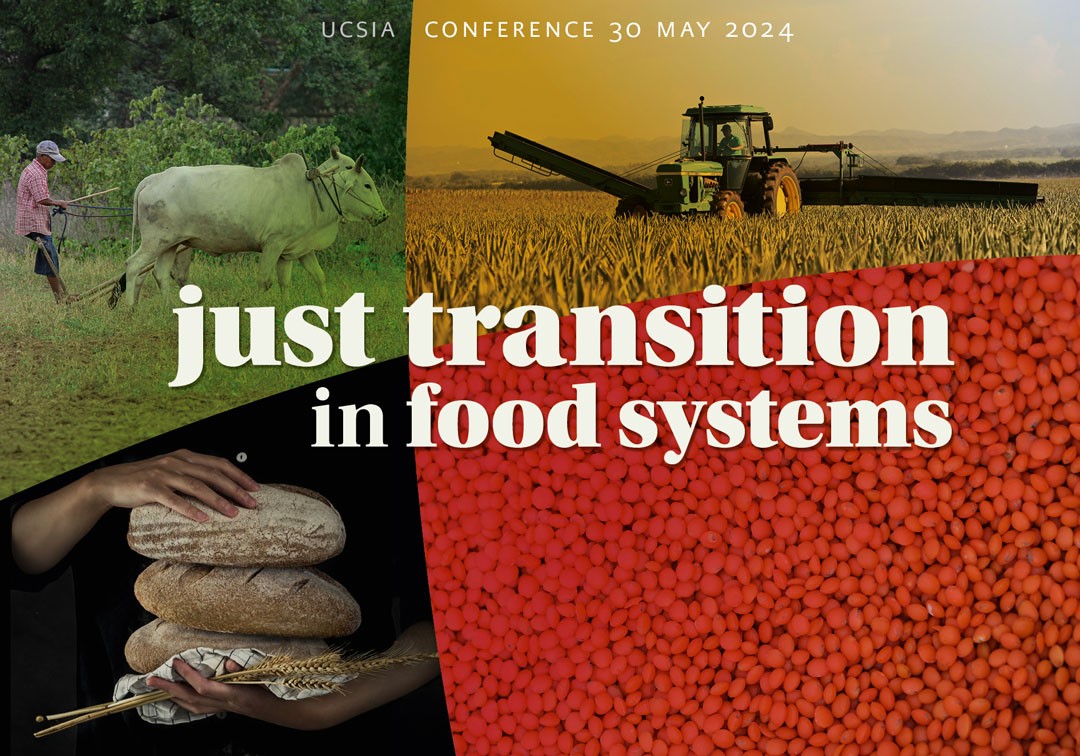
Just Transition in Food Systems
A Socio-Environmental Struggle
conference on 30 May 2024
The corporate global food system is governed by a dominant paradigm based on food as a commodity. That paradigm translates into a mainstream dynamic of industrialization of the food system, characterized by private titling, profit maximization, and money-mediated market interactions. The manufacturing of food on an industrial scale and its worldwide distribution contribute to pushing the environment beyond its ecological limits. In addition, the system fails to provide basic human needs for all and doesn’t guarantee freedom from exploitation and oppression.
From farm to fork, the commodity-based food system keeps expanding so as to progressively exclude alternatives that focus on other worldviews and value sets, intensifying the unequal distribution of resources, opportunities, and rights, with a limited number of actors concentrating economic and political power and the vast majority of people being marginalized and made dependent on processes that they do not control.
Click on the photo to open the gallery.
That is why food systems have become a focus of transition studies that deal with the understanding of long‐term processes of transformative change towards more just societies. Still, a specific focus on the conceptualization of food justice at the crossroad between social and environmental lines is generally lacking. Because of this, ongoing and future changes in the structures and processes of food systems risk exacerbating or reproducing existing injustices rather than moving beyond them.
This is why it is necessary to engage with and give space to transformation for and within the food system, with close attention to ‘who gets what, when, and how’, to what qualifies as a just outcome, who gets to decide what is just, and what justice claims are raised in relation to socio-economic-environmental redistribution, cultural-legal recognition, and political representation.
One such alternative is conceptualizing food systems as based on commons rather than on commodities. This approach is less about the transactions that occur around food as a good but rather about the way in which societies organize food systems as essential networks and ecological connections that are constantly produced, reproduced, and managed. How can this be done collectively, beyond the idea of food as a mere object of consumption and circulation, and in a way that promotes social and ecological utilities and regeneration, rather than profit and accumulation? Recognizing food systems as based on the commons invites producers, workers, communities, and policy makers to propose novel approaches to ensure different forms of production and circulation, but also alternative ways of guaranteeing access to healthy, nutritious, and just food. Rather than a buyer-seller relationship, a food system based on the commons presupposes relational networking, social learning, caring and empowerment through community praxis in order to strengthen democratic self-determination.
This conference aimed to provide a platform to think collectively about a just food transformation from multiple angles and perspectives, including that of decommodification and adoption of alternative principles and premises. During a day of presentations, workshops and group work, we showcased the voices of those who are involved in addressing various forms of inequalities that occur throughout the food system (production, labour, finance/rent, trade, accessibility to means of production or food, etc.) and explored together the notions of justice and the horizons of justice that inform their work and that support their transformative vision. Thanks to their experiences and knowledge, we highlighted the areas of convergence and thus fostering food justice within a multi-scalar politicized context, taking into consideration structural dynamics of power, privilege, and oppression.
Diverse representatives from the field of practitioners, social movements, policy making, and research are invited on the basis of their engagement with the subject matter of food system transition to find common ground within a European context.
The key takeaways from the introduction
- Corporate global food system governed by paradigm whereby food is commodity
- Economic political power concentrated
- Industrialization = ecological overshoot
- Failing to provide basic human needs
- Alternative worldviews, values are excluded
→ Majority of people dependent on a process they do not control
- Need for food system transition towards just societies
- Who gets what, when, how?
- What qualifies as a just outcome, who decides what is just?
- Conceptualize food systems based on commons not commodities
(food not a mere object of consumption and circulation) - Conceptualize food justice at crossroad between social and environmental lines (promote social and ecological utilities and regeneration)
- Focus on environmental redistribution, cultural-legal recognition, political representation
- Focus on food systems as essential networks and ecological connections constantly being produced, reproduced, managed
- How can this be done collectively?
→ Invitation to producers, workers, policy makers and communities, to propose novel approaches for different forms of production and circulation
- Alternative ways to guarantee access to healthy, nutritious, just food
- Platform to think collectively about a just food transformation: decommodification and adoption of alternative principles
- Presupposes relational networking, social learning, caring, empowerment through community praxis to strengthen democratic self-determination
- Amplify voices of those concerned to address various forms of inequalities that occur in the food system (labour, rent, accessibility, trade) and to tackle dynamics of power, privilege and oppression (in a multi-scalar politicized context)
Panel 1 – PLOUGHING THE FIELD
The Need for Food Justice
What are the main injustices of the current food system?
Moderator: Vincent Bellinkx
Speakers:
- Dominik Groß – Christian Initiative Romero
- Katina-Leigh Taylor – FoodFoundation
- Tom Cnudde – Loof en Bezen
- Petra Tas – Landgenoten
Click on the photo to open the gallery.
Vincent Bellinkx – IMDO University of Antwerp
Vincent Bellinkx works at the Institute for the Environment and Sustainable Development and the TURQUOISE research into climate adaptation. He holds the PhD in the field of human rights and environmental development. His research interests are at the intersection of law and transition, mainly focused on the role of non-state actors in legislation and governance. He has practical experience with participation in Brazil, South Africa and Belgium and is committed to both civil society and policy on topics such as just transition, chemical pollution, agroecology, and climate.
Key takeaways:
- From no hunger to food justice and food sovereignty
- Eliminate structural inequalities and injustices such as labour exploitation and racial injustice, in defense of environmental justice, land rights, respect for food and promote education about food growing and preparing

Presentation
Introduction to the first panel by Vincent BellinkxDominik Gross – Christian Initiative Romero (CIR)
Dominik serves as the Officer for Human Rights and Climate Protection in Agrarian Supply Chains at CIR, a German-based faith-driven organization focused on human rights and promoting critical consumption. With a specific focus on the problematic supply chains within the global food system, CIR addresses issues that are central to global challenges such as the climate crisis and forced migration.
One notable initiative where Dominik was involved is the EU-wide campaign titled “Our Food. Our Future.” This campaign combines educational efforts with lobbying activities, advocating for a robust EU supply chain law as part of the Supply Chain Act initiative. Additionally, Dominik along with his team conducted and published studies aimed at understanding the root causes of these problems and exploring effective strategies for combating them.
Key takeaways:
- Involved in research and consumer education, campaigning and advocacy (with a specific focus on Latin-America)
- cf. project with workers on Brazilian orange farms
- cf. engagement with indigenous communities in Guatemala who try to protect land, seeds, water against expanding flex crop industries
- Issue of land rights: legal and extra-legal land appropriation
- What are the root causes of injustice?
- Economic system not based on people’s needs but on creation of profit for companies
- Fails to protect rights of people living and working in the system
- Agro-extractivism instead of food sovereignty
- Who are the main actors in the supply chain and how to coax them?
- cf. Supply Chain Law tool
- cf. Name and Shame campaign
- How can we educate to understand the food system, inspire motivation to advocate for food rights? How can we be allies with people affected by negative impacts of the industrial food system?
More information: www.ci-romero.de
Katina-Leigh Taylor – The Food Foundation
Katina serves as the Campaigns and Research Administrator at The Food Foundation. With a degree in Sociology and a background in engagement related to food poverty and social movements like Black Lives Matter, she brings a fresh, youthful perspective to understanding societal dynamics. The Food Foundation is a UK-based organization dedicated to tackling challenges within the food system for the betterment of the public.
Operating at the intersection of academia and policymaking, they employ various strategies to drive change, including organizing events, publishing research, crafting media narratives, launching social media campaigns, and fostering multistakeholder partnerships. One of the key areas of focus is enhancing children’s diets and promoting increased vegetable consumption, aiming to address critical issues surrounding nutrition and health.
Key takeways
- Educational and emancipatory support for youth in their own campaigning (cf. activist toolkit with resources)
- Food Ambassador program with young people who experience food insecurity
- Encourage policy makers and schools to improve free school meals, implemented across the UK
More information: www.foodfoundation.org.uk

Tom Cnudde – Loof en Bezen | Petra Tas – De Landgenoten
Tom Cnudde is a farmer and a member of the Loof en Bezen team, a Community Supported Agriculture (CSA) group dedicated to cultivating organic vegetables, fruits, and flowers since 2019. Their mission revolves around empowering consumers to harvest their own produce, providing access to fresh, flavorful, locally sourced products. Operating under the CSA principles, wherein participants pay in advance, the group effectively distributes risk among its stakeholders. This collaborative approach enables them to champion honest and ecological food production, nurture fertile soil, and promote a healthy environment.
Key takeaways
- Community Supported Agriculture initiative in Wommelgem, near City of Antwerp (one of 80 in Flanders)
- Granted 3.7 ha land by municipality for 9 years; crowdfunding to buy additional land
- 400 consumers participate in the farm project to guarantee wages for newly trained organic farmers
More information: www.loofenbezen.be
Petra Tas is coordinator of De Landgenoten, a foundation and cooperative that buys agricultural to be protected as farmland and dedicated to organic farming. In this way, citizens enable organic farmers to obtain career-long certainty over the land they cultivate. It is a response to the increasing difficulty for farmers to dispose of land in rural areas. This career-long certainty in turn enables farmers to invest fully in healthy soils, supporting biodiversity and enjoy the benefits themselves. De Landgenoten makes government and citizens think about land ownership and land use by acting together and realising an alternative together.
Key takeaways
- Cooperative that buys land to protect it and dedicate it to organic farming, and trains new eco-farmers
- Difficulty to find new farm land since 40% of land is used for horses and gardens (the countryside is no longer for farmers, increasing farmland prices)
- Wealthy landowners focus on cash crops, do not care for soil health, have lost sight of land as basis for food
- The “let the market play” mindset ignores how health and food are intertwined
- Return to indigenous economy as a gift that entails reciprocity and responsibility
More information: www.delandgenoten.be

Presentation
Presentation of Loof en Bezen and The LandgenotenPanel 2 – PLANTING THE SEED
Food Justice in Action
What may inspire and motivate the actors involved?
Moderator: Maria Cordero-Fernandez
Speakers:
- Raf Callaerts – FIAN- Belgium
- Marta Messa – Slow Food International
- Deborah Myaux – Concertation Aide Alimentaire
Click on the photo to open the gallery.
María Cordero-Fernandez
María is a Global South Fellow in UCSIA. She holds an International Master in Rural Development. María is passionate about understanding the dynamic relationship between humans and nature in food production. With research experiences primarily in Nicaragua and Peru, María is deeply committed to social and environmental justice. She looks forward to continuing her academic journey, driven by her desire to make a positive impact in her field.

Raf Callaerts – Foodfirst Information and Action Network (FIAN-Belgium)
Raf works in FIAN-Belgium, which is a non-profit association dedicated to defending the universal right to food. As a human rights organization, FIAN is committed to reshaping food systems with a focus on social and environmental justice, recognizing the urgency of this endeavor. Through collaborative efforts, FIAN supports grassroots social movements worldwide, amplifying the voices of farmers, rural workers, women, indigenous peoples, fishermen, and consumers. Particularly, FIAN stands by women who face the grim realities of hunger, malnutrition, food insecurity, and the systemic infringement of their basic human rights.
At the forefront of their mission, FIAN vehemently opposes corporate dominance in food systems and governance, as well as the financialization and commodification of vital resources. They actively work to safeguard democracy and human rights—both individual and collective—while condemning the criminalization of social and political activism. FIAN remains steadfast in its commitment to combat environmental and climate destruction, advocating for sustainable practices and policies that preserve our planet for future generations.
Key takeaways
- Belgian section (based in Brussels, more active in the Walloon region than in Flanders) of FIAN International (consisting of 50 sections), created in the wake of Amnesty International
- Strengthening social movements and capacity building, advocacy and mobilization (+ opposing dismantlement of democracy by silencing activism)
- Human-rights based approach: PANTHER (participation, accountability, non-discrimination, transparency, human dignity, empowerment and rule of law)
- What are state obligations to make this right come into existence? As long as there is no human right to food, FIAN will exist.
More information: www.fian.be

Presentation
Presentation FIAN by Raf CallaertsMarta Messa – Slow Food International
Marta is the Secretary General of the global grassroots Slow Food movement. With a robust background spanning politics, economics, and international studies, she brings a wealth of knowledge and expertise to her leadership position. Slow Food stands at the forefront of the fight to pursue a more equitable food and farming system across the globe, with a network active in 160 countries worldwide. The organization translates grassroots efforts into impactful policy initiatives, bridging local and national concerns with European and international discourse.
In the European Union, the organization’s advocacy efforts revolve around pivotal policies at EU, national and urban level. The organization’s focus revolves around various facets of food production, agriculture, fisheries, and their profound impacts on biodiversity and climate change. Through rigorous advocacy campaigns and strategic lobbying efforts, Slow Food Europe endeavors to elevate awareness and catalyze positive shifts in food policy development. Key topics include agriculture, biodiversity preservation, climate resilience, the formulation of a common food policy, sustainable fisheries, genetically modified organisms (GMOs), responsible consumption, and transparent food labeling.
Key takeaways
- 160 countries worldwide, 2000 local groups (network of indigenous peoples, network of slow fish, coffee coalition)
- People act daily to turn vision into reality, striving for:
- Healthy and fair food (in opposition to standardization of taste and monocultures)
- Culturally appropriate food for everyone (Agriculture) in dignity of every person in diverse society
- Joyfulness of food that nourishes communities and creates social bonds
- Regeneration of limited resources, safeguarding all living species and ecosystems
- Economies based on solidarity and cooperation
- Food is a uniting factor, solidarity to benefit all food workers and consumers:
- Everyone in the system should be a valued decision-maker
- Access to food, land and water must be equitable for food systems to be just
- Local food production and cultures are a powerful leverage to change food systems
- Areas of work:
- Developing and nourishing a global movement (every 20 min, a slow food event takes place somewhere in the world; scale matters)
- Working with actors of all sorts: farmers and fishing communities, private initiatives, artisans and cooks, ambassadors of sustainable food systems (collaboration is key)
- Mobilizing and inspiring people through education
- Advocacy and communication (celebrating successful experiences and making the message impactful)
More information: www.slowfood.com

Deborah Myaux – Concertation Aide Alimentaire
Deborah assumes the role of project manager and coordinator at Concertation Aide Alimentaire. Additionally, she serves as the editor of the book titled “Food Aid: Social Protections at Stake.” Concertation Aide Alimentaire operates as an umbrella organization with a primary focus on promoting the right to food as a fundamental human right. Within this organization, various entities engaged in food aid initiatives across the Brussels Region and Wallonia are brought together. These encompass social grocery stores, social restaurants, parcel distribution centers, solidarity fridges, and supply platforms, among others.
The Food Aid Concertation collaborates closely with stakeholders in the field to conceptualize and implement projects aimed at bolstering access to the rights of individuals living in precarious situations. Through this collaborative approach, Concertation Aide Alimentaire endeavors to make tangible strides in addressing food insecurity and advancing social protections for vulnerable populations.
Key takeaways
- Network of professional and voluntary food aid associations, initiated on request of social workers encountering more people in need of food and food aid distracting them from their other social work missions
- 600,000 people (+/- 30% increase post-COVID) relying (at least partially) on food aid (4% of Belgian population affected)
- Food need is marked by violence (cf. research done with ATD/ Quart Monde & UCL in 2018), e.g. by not receiving food when needed or receiving food you don’t choose, being fed in circular second class products; intrusive social investigations to qualify
- From food aid to right to food
- With social workers and volunteers, improve how food aid can better address the needs
- Reality of work does not allow to promote food justice
- Food is a political issue and demands democratic action
- Principles of action:
- Wellbeing at heart of action (material, relational, bodily)
- Unconditional and temporal aid
- Giving voice to people living in poverty (what do people living in poverty have to say? Who defines what food justice is?)
More information: www.fdss.be
Panel 3 – GOING AGAINST THE GRAIN
Food Justice for Alternative Change
What systems changes do we desire?
How do we contribute towards just transitions in the food system?
What are the main challenges encountered and how to tackle them?
Moderator: Peter Rožič
Speakers:
- Roos Saat – Toekomstboeren/ECVC
- Wiebke Warneck – European Federation of Food, Agriculture, and Tourism Trade Unions
- Laura van Selm – POMONA
Click on the photo to open the gallery.
Peter Rožič – Laudato Sí Research Institute
Peter is Director of the Integral Ecology Research Network (IERN) in the Laudato Si Research Institute. Peter leads the global promotion of the integral ecology research. He facilitates academic initiatives and fosters partnerships, with an emphasis on collaborations with institutions in the Global South. Focused on integral ecology and addressing the needs of the most environmentally vulnerable, IERN’s aim is to forge a global academic network rooted in scientific exploration that supports practitioners and policymakers.
More information: lsri.campion.ox.ac.uk

Roos Saat – Toekomstboeren/ European Coordination Via Campesina (ECVC)
Roos represents Toekomstboeren from the Netherlands as a member of the European Coordination Via Campesina (ECVC). Toekomstboeren is a pioneering initiative in aimed at amplifying and fortifying the increasing agroecological movement. Its core mission is to advance sustainable and socially just agriculture, fostering a future where such practices are widely embraced and supported. To achieve this vision, Toekomstboeren operates as an association founded by and for aspiring farmers. Through collective action and collaboration, they strive to empower future generations of farmers and contribute to the transformation of agricultural landscapes.
The European coordination of Via Campesina unites various organizations, including Toekomstboeren, with the objective of aligning them within a broader movement advocating for the rights of peasant farmers, small and medium-scale agricultural producers, and field workers across Europe. Via Campesina’s overarching goal is to defend the rights of farmers and agricultural laborers while championing diverse and sustainable family farming practices.
Key takeaways
- Focus on lived experience of (organic) farmers; we exist despite the system
- Member of Via Campesina, uniting 200 million food producers in 80 countries around the world (multiplier effect)
- The issues to be faced are so all-encompassing that collective action is needed (as allies envisioning the same future and standing in solidarity, not just as stakeholders sharing the same interest)
- We are tackling food injustice by design by big corporations and a competitive trade market leading to exploitation; profit and power rule (a small dairy farmer depends for 50% on subsidies to survive; while industrial farms that do not need it, attract the lion’s share of subsidies)
- Our voice is absent from the European negotiation table and the Green Deal should be more radical
- Unions also have specific goals or ideas about what farming system should look like and ask from farmers to stay consistent and follow agreements
- Regenerative agriculture risks being co-opted by corporate interests for greenwashing
- Right wing populism uses voice of farmer to advance their own political interests
- Food producers must decide what food system should look like, for the sake of future generations
- Advocating for environmental regulations is becoming risky business (intimidation and threats)
More information: toekomstboeren.nl | www.eurovia.org

Laura van Selm – POMONA
Laura serves as the coordinator of POMONA, where her leadership extends across the realms of Youth, Agriculture, and Culture. POMONA, an organization dedicated to raising awareness among local communities, endeavors to foster restorative agricultural practices. POMONA aims to provide ecologically produced, high-quality food to its users, with the ambitious goal of meeting 80% of their needs.
At the heart of POMONA’s mission lies the pursuit of ecological, economic, and social restoration in food production. The organization firmly believes that achieving this vision necessitates close collaboration between farmers and citizens. By actively engaging both parties in decision-making processes and fostering a sense of community ownership, POMONA strives to create a sustainable and mutually beneficial food system.
Key takeaways
- Advocating for fair wages and regenerative farming practices in learning network for mutual support
- In Flanders a small farmer earns 4 euro an hour, while wealthiest farmers get majority of subsidies
- Ministry of Environment only focusses on land acquisition for nature preservation and bio-diversity, without recognizing the role bio-farming can play in this.
- Change must come from policy and from citizens
- Value-based approach: economical fairness (fair pay), social participation and ecological restoration (of land and community) as a matter of restorative justice
- Bring citizens to farm, not just as clients, but as co-owners , for affinity and awareness (you do have a choice in what is on your plate; you are what you eat)
- Work together with (bio)-industry if possible; they can also facilitate the transition cf. Dutch example HAK; opting for biological vegetables, obliging its producers to change to eco-farming (350 farmers involved)
More information: www.pomonavzw.be

Wiebke Warneck – European Federation of Food, Agriculture, and Tourism Trade Unions (EFFAT)
Wiebke Warneck holds the position of Political Secretary in the Food, Drink and Tobacco sector at EFFAT, a renowned organization representing the interests of over 4.5 million workers in the food and drink sector across Europe. As the largest organization of its kind on the continent, EFFAT plays a pivotal role in a key EU area characterized by its significant workforce, innovative practices, and the production of high-quality products.
EFFAT’s overarching mission is to combat social dumping and advocate for fair pay and decent working conditions within the sector. Through active engagement in the European social dialogue, EFFAT spearheads negotiations with European employers’ organizations to enhance the conditions of workers. Moreover, EFFAT extends its efforts beyond the food and drink sector to encompass agriculture, where it promotes a sustainable Common Agricultural Policy (CAP), safeguards employment, advocates for fair pay in rural areas, and fosters the development of social dialogue to enhance working conditions across the agricultural sector.
Key takeaways
- 40 million workers in these sectors, 160 trade unions in 37 countries
- Most of the sessions today do not talk about the food industry workers, whose labour conditions are problematic: precarious employment (high risk and low wages), housing, and living conditions, with up to 80% of the workforce consisting of migrants (the meat sector is the worst off, with the practice of hot-bedding, shift-workers sharing a bed in turn). The conditions are exacerbated by companies not employing directly, but through labour intermediaries and sub-contractors
- The food system should produce affordable food of good quality for everyone and in decent conditions, but we see the contrary happening today with clear winners (big retailers, food companies, chemical companies, food giants record shareholder profits) and losers (small farms and food workers). We have a food system that cares about putting cash in pockets, not about feeding people. It is more about food availability than food affordability.
- Redistribute wealth and fight exploitation of workers, but European policy discussions are not going in the direction of systemic change (evaluation here, code of conduct there, but with these tools, we will not achieve the shift we need).
- Sustainability on EU level, very rarely if ever, integrates the social perspective of the workforce (e.g. Farm to Fork programme is deficient on the social dimension). Social conditionality for public funding (cf. Common Agricultural Policy) must be imposed.
- A just food transition requires collaboration with all stakeholders in a social dialogue at the European level to guarantee healthy working conditions in the food-producing sectors and equitable agreements with the employers
More information: effat.org

Panel 4 – HARVESTING THE CROP
Conclusions
What to retain?
How to feed the agenda?
How to join forces?
This was an exercise in common discernment on issues with no pre-defined solution, seeking a way out together. What is this debate really about (what was lacking)? How are we going to work together (who is missing)? What is the next possible step?
Moderator: Jacques Haers
Speakers:
- Annemarieke de Bruin – Wageningen University
- Séverine Deneulin – Laudato Si Research institute
- Kerli Ats – European Economic and Social Committee
- Béla Kuslits – Jesuit European Social Center
Click on the photo to open the gallery.
Jacques Haers
Jacques is Director of the pastoral servive of the KU Leuven, a member of the Faculty of Theology and Religious Studies and the Research Unit Systematic Theology and the Study of Religions. Since 2001, he chairs the Centre for Liberation Theologies. His research addresses contextual and liberation theology in a planetwide context, with special emphases on globalization, violence and peace, climate challenges and the fundamental and methodological aspects of these theologies. He also researches the theology of religious life as well as Ignatian theology, where he pays specific attention to the dynamics of common apostolic discernment.

Annemarieke de Bruin – Wageningen University
Annemarieke de Bruin is an interdisciplinary researcher with over 15 years of experience in UK-based and international academic research. Her research has focused on interdisciplinary learning processes that bring together stakeholders within the context of agriculture, water governance, and tree health management. She graduated in 2007 from Wageningen University with an MSc in Tropical Land use and an MSc in Geo-Information Science. After graduating she moved to the UK where she worked as a researcher at the University of York and at the Stockholm Environment Institute’s York centre for 13 years. There she focussed on agricultural water management, more-than-human participation, and farmer-led innovation. She is now doing a PhD at Wageningen University in which she studies the ongoing transition of the food system in the North of the Netherlands from a justice perspective. She specifically looks at how people perceive justice in a food system transition.
Key takeaways
- The transition is ongoing, norms and values are changing which gives a sense of hope
- We know the problems better than we think; researchers should collaborate with all stakeholders to incite the change needed
- A transition can demand a disproportionate amount of work and energy from those most marginalized, or can be co-opted by powerful stakeholders
- Researchers are privileged, others need to be capacitated to participate in the transition; participatory inequalities (being capable or not, having or lacking the funding, time, skill) is a matter to be addressed in name of distributive justice
- The facilitators of these processes are to make conscious efforts to recognize this, as in my experience with farmer-led conversations with various sectors, presupposing the creation of a shared language and understanding to arrive at a shared problem definition and relevant innovations, based on the expertise of different parties involved. Context and power dynamics are to be monitored closely

Severine Deneulin – Laudato Sí Research Institute
Severine is the Director of the Laudato Si’ Research Institute, Campion Hall, University of Oxford, and is also an Affiliate Fellow at the Oxford Department of International Development where she teaches in the MPhil in Development Studies. The Laudato Si’ Research Institute is a work of the British Jesuits. Its mission is to conduct transdisciplinary research on today’s most pressing social and ecological challenges within an integral ecology paradigm. The Institute aims to foster a new and dynamic dialogue between academia and stakeholders invested in socio-ecological change for the betterment of our shared planet.
Severine’s area of expertise lies in development ethics, which encompasses a critical examination of the concept of ‘progress’ and the methods employed to achieve it. Her research predominantly delves into the intersection of ethics and socio-economic development, with a particular focus on exploring the tenets of the Catholic social tradition. She is currently leading two major research projects, one on the role of the Catholic Church in socio-environmental conflicts in Latin America, and the other on Christian-Muslim dialogue on integral ecology. In her role at the Laudato Si’ Research Institute, she is also involved in a research project on ‘Loving our Land and Neighbour’ which explores spirituality and contributions of faith-based actors in agro-ecology.
Key takeaways
- The climate is changing food production, there will be drastic changes in how we produce food; need for more exchange of experiences and stories of change and success, specific cases where change has happened, what has made change possible (cf. faith communities in Latin America resisting extraction, analyzing strategies of defense, mobilizing discourse, how theological discourse is utilized)
- Ecological conversion: every initiative today was about turning away from exploitation and towards care
- Faith organisations have unique potential to nurture love for creation, for everything that is alive
- LSRI has a new project on agroecology and role of churches; what difference can theology make?
More information: lsri.campion.ox.ac.uk

Béla Kuslits – Jesuit European Social Centre (JESC)
Béla is a member of the Ecology team at JESC, where his focus lies on environmental policy and facilitating the ecological transition within the broader network of European Jesuits. With a diverse educational background spanning medicine, sociology, anthropology, and environmental management, Béla possesses a unique skill set ideal for addressing various social-environmental issues.
At JESC, one of the primary areas of emphasis is sustainable food systems. Within this thematic framework, the organization strives to promote an agricultural system that ensures accessible, nutritious, and environmentally sustainable food for all individuals. This involves deep reflection and active contribution to shaping the policies and practices of Europe. JESC Ecology’s latest initiative on sustainable food systems is called Our Daily Bread. This initiative so far has researched and recognized over 150 faith-based organizations across the 27 EU member states which work on sustainable food systems and agriculture. JESC is committed to fostering engagement that authentically embodies Christian faith, demonstrates expertise in analyzing social realities, stands in solidarity with the marginalized and disadvantaged, and advocates for social and environmental justice within European political structures and actions.
Key takeaways
- Consumers don’t know about these issues, don’t really care (interfaith dialogue, churches and faith-based organisations can raise awareness among citizens)
- JESC is developing a network of faith-based organisations (Our Daily Bread) interested in food and food policy to advocate for more sustainable, just policies
- Political system not well designed to solve the problem; social issues connected to food challenges are hard to tackle
- There is a tension in implementation between food security and food justice whereby food security tends to lean on short-term solutions (and emergency measures) that fail to address power imbalances contributing to systemic food injustices including labour and migration policy. Key to food justice is empowering food workers with agency; concentrating on food security can disrupt solidarity efforts that challenge structural inequality.
- What we need should be realized much faster than the incrementalism of today
More information: jesc.eu

Kerli Ats – European Economic and Social Committee (EESC)
Kerli Ats is a chief executive officer (CEO) at Estonian Farmers’ Federation, an umbrella organization representing Estonian small and medium-sized farmers. She is also a member of the European Economic and Social Committee (EESC). She is an active farmer herself, managing almost 120 ha of agricultural land in the Pärnu county, and is engaged in pasteurised organic beef cattle production. Kerli has graduated from Estonian Business School and has a master’s degree in entrepreneurship. Since 2018, she is a doctoral student in the Estonian Business School specializing in knowledge transfer and agribusiness networks. She has also studied animal husbandry at the Olustvere School of Service and Rural Economics. She is currently the Rapporteur of an ongoing EESC own-initiative opinion, on a just transition to ensure a sustainable future for the EU agri-food systems.
Key takeaways
- Entrepreneurs, businesses, trade unions, farmers, environmentalists, consumer representatives, all agree transition is needed
- The EESC offers a valuable platform
- Starting from the vision that no one is left behind, what are realistic solutions on the way towards distributive justice in the food system?
More information: www.eesc.europa.eu

Organizers
Tomaso Ferrando (Faculty of Law, University of Antwerp)
Danya Nadar (Institute of Development Policy, University of Antwerp)
Vincent Bellinckx (Institute of Environment and Sustainable Development, University of Antwerp)
Janus Verelst (University Foundation for Development Corporation, University of Antwerp)
Bela Kuslits (Jesuit European Social Centre)
Jacques Haers, Erik De Bom, Maria Cordero & Barbara Segaert (University Centre Saint-Ignatius Antwerp)
